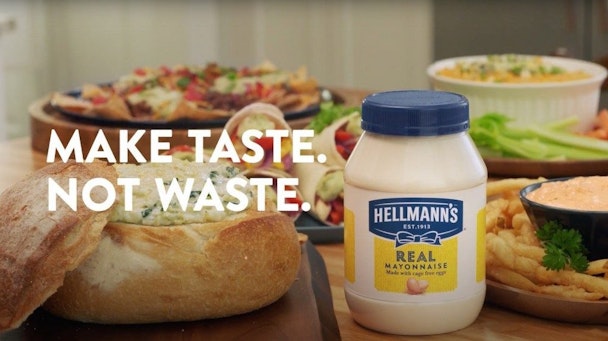'It's too early to tell what he'll do': is Unilever’s purpose marketing safe with a new CEO?
In the face of criticism, outgoing chief exec Alan Jope has been a staunch defender of the FMCG giant’s purpose-led strategy. The question is, will new CEO Hein Schumacher be just as committed?

The future of Unilever’s purpose-led marketing
At the Cannes Lions Festival of Creativity today, Unilever marketing boss Conny Braams (who announced last month that she is stepping down after 33 years at the FMCG giant) took to the Palais stage for one final reminder to the industry of the power of a purpose-focused marketing strategy.
Braams has led Unilever’s global marketing since 2020, heralding campaigns such as Dove's stand against toxic beauty standards and Hellman’s 'Make Food Not Waste' position as the company pivoted to a model that demanded all of its household name brands align their marketing and commercial efforts to a wider societal cause.
In recent years, however, that approach caused debate among investors who openly questioned whether it’s truly necessary for a mayonnaise brand to take a stand on environmental issues.
Advertisement
Investor Terry Smith has been the loudest critic, saying last year that the company was “obsessed with publicly displaying sustainability credentials at the expense of focusing on the fundamentals of the business”.
Frustration has been compounded over the past year by inflation and the cost of living crisis, which has put pressure on Unilever to deliver growth across its brands. Since Alan Jope began as CEO in 2019, shares have dropped 2% compared with a 55% gain at its closest competitor, Procter & Gamble, and a 35% advance at Nestle, according to Bloomberg.
Bramms has consistently defended its position with the backing of Jope. In 2019, he told a delegation in Cannes that brands that didn’t have a “purpose” would become increasingly irrelevant in the Unilever portfolio and, in direct response to Smith, that "purpose drives profits”.
Advertisement
But next month Jope will depart Unilever, followed soon after by Braams. Jope will be replaced by Hein Schumacher, the boss of Dutch dairy giant Royal FrieslandCampina, while Braams’s successor is yet to be named. The arrival of an external CEO to lead the brand through the current economic crisis has consequently left a question mark over the future of this purpose-obsessed marketing model.
Braams says: “It’s early. He starts July 1, so we’d be predicting the future [to say what he’ll do]. But if a company says the mission is to make sustainable living commonplace, then it’s wider than the CEO. It’s an integral part of the business.
“On our purpose in marketing…will it remain? Of course, the new CEO will want to shine his new light on it but you can see from his history he’s a strong promoter of sustainability. But at this moment in time, it’s too early to tell [what he’ll do]. But [purpose] is a belief system that’s throughout the whole company so it’s not just Alan that’s supported it. If one person leaves it’s not like it stops.”
Suggested newsletters for you
At FrieslandCampina, Schumacher advocated for a shift toward a sustainable, tech-enabled supply chain by, among other things, overseeing a factory merger that helped the company reduce CO2 emissions in fresh-daily dairy production by 30%.
Unilever’s global team of marketers will also be under increasing pressure to deliver purpose-focused work which challenges societal behavior without engaging in a culture war that could impact sales for the worse.
Bud Light has suffered reputation and commercial damage for a social marketing campaign that featured trans TikTok star Dylan Mulvaney. It sparked a backlash from anti-LQBTQ groups that has led to a sales decline it’s still struggling to halt. Since then, brand leaders have shown caution in releasing work that takes a stand against divisive social issues.
Alessandro Manfredi, the marketing lead for Dove and instigator of its recent campaigns to shine a light on the toxic nature of social media, admits it’s a careful line the brand is having to tread.
“There is always a risk you get someone unhappy with your point of view when you have one. There is not zero risk of pissing off somebody, so you have to minimize it. For me, what’s critical is to stay authentic. What we do comes from our own point of view, not from the fact we want to jump into a discussion. We’re clear on where the brand has a license to talk and doesn’t. But it’s difficult.”

